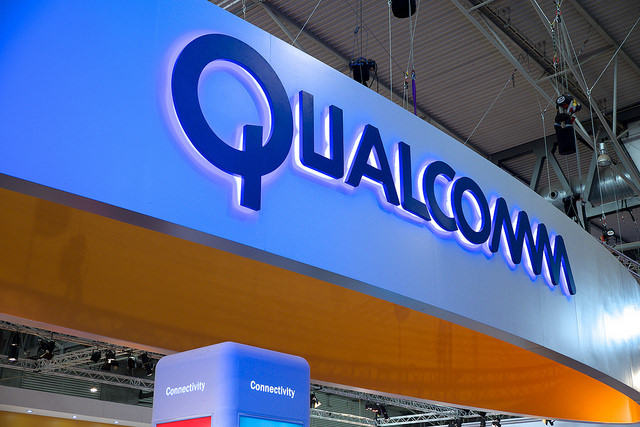 INFRA
INFRA
 INFRA
INFRA
 INFRA
INFRA
Qualcomm Technologies Inc. said today it’s giving up on its bid to acquire Netherlands-based chip maker NXP Semiconductors N.V. because of a delay in approval from Chinese regulators.
The announcement came as Qualcomm posted better-than-expected third-quarter earnings.
The company’s $38 billion bid to acquire NXP has dragged on for almost two years, hampered by regulators and now seemingly being sucked into the ongoing trade dispute between the U.S. and China. Chinese regulators have refused to sign off on the deal, causing Qualcomm Chief Executive Steve Mollenkopf to take decisive action.
“We intend to terminate our purchase agreement to acquire NXP when the agreement expires at the end of the day today, pending any new material developments,” the CEO said during a conference call. “In addition, as previously indicated, upon termination of the agreement, we intend to pursue a stock repurchase program of up to $30 billion to deliver significant value to our stockholders.”
The deadline to complete the NXP purchase expires at 11:59 p.m. EDT Wednesday, and if no new developments take place by then, Qualcomm will pay the Dutch company a $2 billion termination fee. Investors will likely be relieved to have clarification on the matter, said analyst Patrick Moorhead of Moor Insights & Strategy.
“Many investors over the past 18 months have been concerned over the unknowns with NXP, future growth opportunities and its licensing business,” Moorhead said. Indeed, shares rose almost 7 percent in extended trading after today’s market close.
Qualcomm first announced its intention to buy NXP in October 2016, but the deal dragged on for months, firstly from European regulators’ concerns Qualcomm might exploit the acquisition to harm its competition and unfairly raise prices. E.U. regulators did eventually sign off on the deal, but U.S. President Donald Trump’s decision to target China in a trade war last year meant that Chinese regulators have stalled on signing off themselves.
The acquisition was intended to help Qualcomm, which makes money selling chips to smartphone makers and by licensing patents for a number of key mobile communication standards, expand into new markets such as automotive chips. Although it maintains a commanding lead in mobile processors and modems, the company views the automotive and “internet of things” markets as potentially massive growth areas as these are still just taking off.
Qualcomm had further bad news for its investors today, even if they chose not to worry about it for now or already had accounted for the impact: Executives confirmed their belief that rival Intel Corp. will become Apple Inc.’s exclusive supplier of cellular modem chips for its next generation of iPhones.
Qualcomm has been Apple’s main supplier of modems for years, whereas Intel has only supplied components for GSM versions of the iPhone 7 and later models since 2016. Losing Apple could be a major blow for Qualcomm since the iPhone is one of the best-selling smartphones in the world.
For its part, Apple may be keen to ditch Qualcomm because it’s currently embroiled in a legal dispute with the chipmaker, accusing it of abusing the patents it holds to demand excessive royalty payments. Apple also knows it can now rely on Intel thanks to that company’s new XMM7560 chips, which can support both GSM and CDMA networks.
The good news for Qualcomm is that none of this has affected its financial performance so far. In its latest third-quarter results, the company posted a profit of $1.2 billion, or 82 cents per share on revenue of $5.6 billion, up 6 percent from a year ago. Wall Street was expecting only a 71-cent profit on revenue of $5.188 billion.
“The company showed just how much growth it has outside of its core digital modem platform,” Moorhead said of the financial results. “Qualcomm also shed light on its licensing business, which demonstrates to me that this is sound. All in all, with the buybacks, clarity on NXP and successes in licensing, added to growth outside of digital mobile, Qualcomm looks to be back.”
In other chip news, Advanced Micro Devices Inc. posted solid financial results Wednesday. The company reported a second-quarter profit of $116 million, or 11 cents per share, on revenue of $1.76 billion, up a massive 53 percent from a year ago. The company posted earnings after certain costs such as stock compensation of 14 cents per share.
AMD said its finances benefited from higher sales of its EPYC central processing units for personal computers, as well as strong growth in gaming and graphics processing units. The company’s shares rose almost 6 percent in after-hours trading. Update: On Thursday, they jumped 14 percent by the end of the trading day.
Support our mission to keep content open and free by engaging with theCUBE community. Join theCUBE’s Alumni Trust Network, where technology leaders connect, share intelligence and create opportunities.
Founded by tech visionaries John Furrier and Dave Vellante, SiliconANGLE Media has built a dynamic ecosystem of industry-leading digital media brands that reach 15+ million elite tech professionals. Our new proprietary theCUBE AI Video Cloud is breaking ground in audience interaction, leveraging theCUBEai.com neural network to help technology companies make data-driven decisions and stay at the forefront of industry conversations.